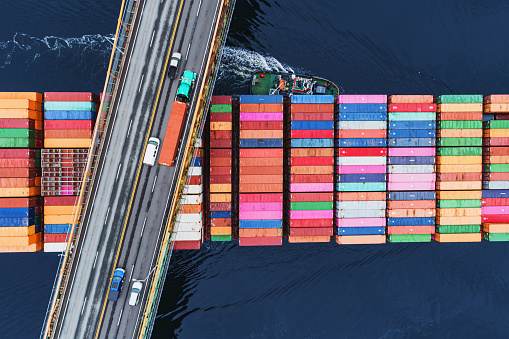-
Global Supply Chain Vulnerability – ModusLink

Navigating Troubled Waters: The Red Sea Crisis and the Vulnerability of Global Supply Chains Introduction:
In 2023, approximately 24,000 vessels plied the Red Sea passage, constituting around 10% of global seaborne trade by volume, according to Clarksons, a shipbroker. This includes 20% of the world’s container traffic, nearly 10% of seaborne oil, and 8% of liquefied natural gas. Faced with the challenges posed by the Red Sea crisis, supply chain companies can take proactive measures and enhance the resilience of the global supply chain. By implementing key strategies, they can better navigate troubled waters and ensure the efficient movement of goods across international waters. This update explores essential strategies.
1. Diversification of Shipping Routes:
- Evaluate alternative shipping routes that bypass regions prone to geopolitical tensions or piracy.
- Identify secondary routes for use in case of disruptions in primary routes.
- Collaborate with logistics partners to establish diversified and flexible transportation plans.
2. Investment in Technology:
- Utilize advanced technologies such as blockchain, IoT, and AI for real-time tracking and monitoring of shipments.
- Implement predictive analytics to anticipate potential disruptions.
- Improve communication and information-sharing among supply chain partners through digital platforms.
3. Enhanced Security Measures:
- Collaborate with maritime security agencies and international organizations to ensure the safety of shipping routes.
- Implement security protocols to protect cargo and vessels from piracy and other security threats.
- Invest in surveillance systems and employ security personnel to monitor critical waterways.
4. Risk Assessment and Contingency Planning:
- Conduct thorough risk assessments to identify vulnerabilities in the supply chain.
- Develop comprehensive contingency plans to address potential disruptions and ensure business continuity.
- Regularly review and update contingency plans to adapt to changing geopolitical situations.
5. Supply Chain Visibility:
- Enhance end-to-end visibility across the entire supply chain.
- Collaborate with suppliers and logistics partners to share real-time information on inventory levels, shipments, and potential delays.
- Implement technologies like RFID to track and trace goods throughout the supply chain.
6. Diversification of Suppliers and Manufacturing Locations:
- Avoid overreliance on a single supplier or manufacturing location by diversifying sources
- Assess the geopolitical stability of supplier regions and consider relocating manufacturing facilities if necessary.
- Build strong relationships with suppliers to ensure open communication and collaboration.
7. Collaboration and Industry Partnerships:
- Engage in industry collaborations and partnerships to share best practices and intelligence on potential risks.
- Establish forums for dialogue among supply chain professionals, government agencies, and relevant stakeholders to address common challenges.
- Participate in industry initiatives aimed at improving the overall resilience of global supply chains.
8. Regulatory Compliance:
- Stay informed about and comply with international regulations related to maritime security and trade.
- Regularly update policies and procedures to align with evolving regulatory requirements.
- Collaborate with regulatory authorities to contribute to the development of effective and practical guidelines.
Conclusion
In conclusion, by adopting these strategies, supply chain companies can effectively navigate the troubled waters presented by the Red Sea crisis and enhance the overall resilience of the global supply chain. Proactive planning and a collaborative approach, including leveraging ModusLink’s services, are essential to mitigating risks and ensuring the smooth movement of goods across international waters.
Bibliography
OpenAI’S GPT-3
Information was also provided by OpenAI’S GPT-3 language model.
Disclaimer:
Content is the opinion of ModusLink Corporation and is not intended to act as compliance or legal advice.